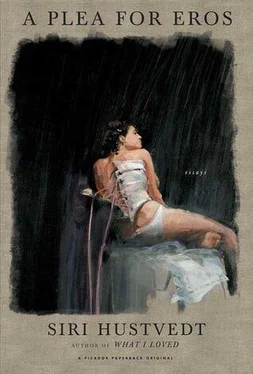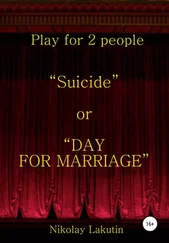It is interesting to note that Ransom’s decision to chase Verena in earnest, despite his poverty and dim prospects, is fueled by the rather flimsy justification that one of his essays has at last found a publisher. A single publication does not change Ransoms financial future, but he seizes upon it as a sign of a new public voice, which invigorates him in his quest to silence Verena’s. The newly acquired stature as public speaker gives credence to Ransom’s private utterance, a marriage proposal, just as his anti-feminist ideas justify his very personal advance on Verena. The eloquent phrases describing the pathos of female oppression, which Olive feeds to Verena, can’t contend with Basil’s verbal seduction. His most potent phrase turns out to be his accusation that Miss Tarrant isn’t real. He tells her that in her desire to please others she has come to resemble “a preposterous little puppet” commandeered from behind the scenes, and the suitor turns his love object’s own phrase against her: “It isn’t you; the least in the world.” What she originally believed was selfless devotion to a cause, a belief that allowed her to proclaim with pride, “It isn’t me,” is transformed through Ransom’s steady rhetorical assault into an accusation of fraud: “, … these words, the most effective and penetrating he had uttered, had sunk into her soul and worked and fermented there. She had come at last to believe them and that was the alteration, the transformation.” Sentence by sentence, Ransom enters the inner sanctum of her doubts. Although he has touched on a truth and offers Verena the hope of “standing forth in … freedom,” his is finally a promise of continued captivity under another name. Verena’s fate is sad, but she is too wobbly and empty a character to be tragic, and Basil Ransom’s hunger for Verena Tarrant is augmented by the stature of his adversary, Olive Chancellor, who, unlike Verena, is truly his equal. In terms of the book’s politics, this irony creates a final and terrible resonance. It also redeems James from the charge that The Bostonians is somehow against women. It is a book uncomfortable with causes but deeply, intimately comfortable with women.
In the novel, only Olive Chancellor achieves tragic dimensions, and it is because of all the characters in the book she feels most, and feeling is the domain where Henry James is transcendent. The painfully private Olive Chancellor will in the end suffer the horror of public exposure and failure as well as the loss of the person whom she loves most passionately in the world, and it is a fate she has brought upon herself. Her culpability, however, doesn’t in the least diminish the depth or reality of her pain or this reader’s immense pity for her. Stiff, humorless, prejudiced, and half-blind to the reasons for her actions, the little Boston spinster becomes in her profound sorrow and humiliation heroic.
…. as soon as Ransom looked at her he became aware that the weakness she had just shown had passed away. She had straightened herself again, and she was upright in her desolation. The expression of her face was a thing to remain with him forever; it was impossible to imagine a more vivid presentment of blighted hope and wounded pride. Dry, desperate rigid, she yet wavered and seemed uncertain; her pale glittering eyes straining forward, as if they were looking for death. Ransom had a vision, even at that crowded moment, that if she could have met it there and then, bristling with steel or lurid with fire, she would have rushed on it without a tremor, like the heroine that she was.
“In the arts,” James wrote, “feeling is always meaning.” For me, these words illuminate not only the novelist’s ars po-etica but also James’s great strength as a writer. His experience of the world and his empathy for other people produced a body of work that adamantly refused ready categories, received ideas, and preordained notions of all kinds in favor of the difficult, strange, tender, and always multifarious arena of human relations and emotions. I think James felt that every attempt to reduce life to a system of beliefs — religious, political, or philosophical — must inevitably become a form of lying.
Late in his life, he tried to explain his wariness of systems to two politically engaged writers: George Bernard Shaw and H. G. Wells. As a member of the committee that had rejected a play by James, Shaw told its author in a letter, “People don’t want works of art from you. They want help, they want above all encouragement.” In his response, James argued: “… all direct ‘encouragement’—the thing you enjoin me on— encouragement of the short cut and say ‘artless’ order, is really more likely than not to be shallow and misleading …” Wells had hurt James by publishing a cruel attack on the older writer in a satirical book called Boon, The Mind of the Race, in which he had, among other things, criticized his “view of life and literature.” To Wells, James wrote, “I have no view of life and literature, I maintain, other than that our form of the latter in especial is admirable exactly by its range and variety, its plasticity and liberality, its fairly living on the sincere and shifting experience of the individual practitioner.” And later in the letter, he elaborated further, “It is art that makes life, makes interest, makes importance, for our consideration and application of these things, and I know of no substitute whatever for the force and beauty of its process.” James believed in the power of art, not because he thought it would change the world or because he imagined it could be a mirror of life. Art, he explains to Wells, is “for the extension of life, which is the novel’s best gift.”
James was probably too subtle for his correspondents, but the idea of “extension” makes sense to me because art and the world can’t be as easily divided as we sometimes imagine. One comes from the other, and they intermingle in the consciousness we as readers meet on the page. Art can and does make life, as James says, because when we encounter a great work of art it creates feeling, and that feeling in the reader, the viewer, or the listener is finally what the work means. I have lived with James’s characters and stories for many years, and they do not leave me. They have become part of who I am, and I can’t help but feel that their creator, who worried over his paltry sales and lack of popularity with the reading public, would have been very happy to know how I feel. He would have been glad to know that his work has lasted and grown in importance and that I am only one of many people who have been permanently altered by his books.
In its range and variety, its plasticity and liberality, The Bostonians is an embodiment of James’s nonprescriptive idea about what a novel should be. Through a story that delineates the power of words to obfuscate, exploit, and distort human reality, Henry James offers his own nuanced, precise, and sensitive prose in opposition to the dead phrases that stream from lecture halls, line the pages of newspapers, and float from one speaker to another in that arid climate that was Boston. That city has changed and the United States has changed since James wrote his American novel, but dead phrases, empty rhetoric, clichéd thought, as well as ready-made opinions and just plain nonsense proffered to the public by the press show no sign of abating anytime soon.
I believe it’s impossible to read The Bostonians without at least wondering about the ways we use language or language uses us. Moribund and idiotic political statements continue to influence and sway us because of the manner in which they are spoken or written. Even the most sincere declaration of devotion to a noble cause may be born from private venom or personal misery. There is always a gap between what we feel and what we say. Henry James knew that it was heartbreak-ingly difficult to capture the flux of experience in words, to articulate the riddle of human feelings and actions, but this was precisely his ambition, and I, as one of his faithful readers, love him for it.
Читать дальше












